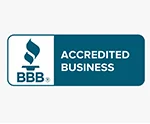Legal Tips for Buying a Property in Alberta
April 22, 2024
Real Estate

Buying a property is a significant, life-changing decision, one that often requires navigating complex laws, regulations, and procedures. It requires comprehensive research and a clear understanding of the legalities involved. If you’re considering purchasing property in Alberta, a province known for its scenic beauty and thriving real estate market, this guide will provide valuable insights and legal tips to help streamline the process.
1. Understand the Property Laws:
Alberta’s property laws are unique from other provinces, therefore it’s crucial to have an in-depth understanding of these specific laws. The regulations cover various aspects such as property taxes, property types, landlord and tenant rights, and so on.
Alberta’s property laws are governed primarily by the Law of Property Act, the Condominium Property Act, and the Residential Tenancies Act, amongst others. These laws dictate how property transactions should take place and stipulate the rights and responsibilities of buyers, sellers, landlords, and tenants. Familiarizing yourself with these laws could potentially save you from misunderstandings or costly legal disputes down line.
Further, Calgary notaries provide advice to parties about the potential legal implications of their actions. In business transactions, for instance, they may inform a company about potential legal pitfalls in a contract. The role of notaries thus extends beyond just witnessing signatures. They act as neutral facilitators that help to prevent fraudulent transactions, ensure parties understand contracts before signing them, and guarantee that the procedures are carried out correctly.
2. Hire a Real Estate Lawyer:
When buying property in Alberta, hiring a real estate lawyer is not a legal requirement, but it’s highly recommended. An experienced real estate lawyer can review property documents, ensure transactions are legally sound, and offer protection against future legal disputes.
Furthermore, a real estate lawyer can offer invaluable guidance in understanding specific legal terminologies and procedures. They essentially work on your behalf to ensure your interests are protected throughout the property acquisition process.
3. Title Search:
A title search essentially involves a thorough examination of public records to confirm the legal ownership of the property and to identify any liens, encumbrances, or issues that could affect the property’s sale.
In Alberta, a title search is a crucial step when purchasing property. Potential property buyers can commission a title search through the Registry Agent Offices to ensure the seller is the actual owner of the property and check for any registered interests that may impact the acquisition.
4. Purchase Agreement:
The property purchase agreement is a legal contract that outlines the terms and conditions of the purchase, including the property’s price, date of possession, any included items, and conditions of the sale. It’s essential to review this document carefully.
One of the legal principles in Alberta real estate is called caveat emptor or “buyer beware.” This principle holds that the buyer is responsible for verifying the property’s condition before purchase. As such, it’s vital to have a real estate lawyer go through the agreement, and any issues should be negotiated and remedied before signing the agreement.
5. Property Inspection:
Although not a legal requirement, having a property inspection performed before finalizing the purchase is highly recommended in Alberta. This inspection can reveal potential structural issues, the condition of the plumbing and electrical systems, roofing, insulation, etc.
Some buyers might also opt for a property survey, which will disclose the boundaries of the property. A survey can also reveal if any portion of the home or proposed additions violate local zoning laws. Taking time for these inspections can save you from expensive repairs or legal headaches in the future.
6. Real Property Report (RPR):
An RPR is a legal document in Alberta that provides valuable data about the property, including the location of improvements relative to property boundaries. It also indicates any encroachments from/by your property onto your neighbors’ property or vice versa.
While it isn’t legally mandated, obtaining an updated RPR is often a condition of sale and should be negotiated before completing the purchase. The RPR can be used for obtaining municipal compliance or non-conformance reports. Non-conformance reports may reveal violations that can attract penalties or require adjustments that might influence your decision to purchase.
7. Property Insurance:
In Alberta, having property insurance is not a legal requirement but is strongly advisable. Furthermore, if you’re obtaining mortgage financing, the lender usually requires property insurance for the life of the mortgage.
Your insurance coverage should protect against potential hazards such as fire, theft, and liability. If you’re purchasing a condominium, remember that while the Condominium Association provides insurance for common property areas, you’ll need to ensure your unit and personal belongings.
8. Closing the Deal:
On the agreed closing date, you’ll be required to pay the remaining balance of the purchase price (assuming a down payment has been made). This payment is typically facilitated by your lawyer.
Your lawyer will additionally ensure that all other legal requirements, such as tax adjustments and the registration of the title deed in your name, are met. Once this is done, the keys to the property will be handed over to you.
In conclusion, when it comes to buying a property in Alberta, it is essential to familiarize yourself with the local property laws, seek legal advice, conduct diligent inspections, negotiate effectively, and take necessary precautions such as obtaining property insurance. Following these legal tips can help ensure a smooth and successful property purchase process. Doing so not only protects you from potentially costly legal disputes but also ensures that your obtained property is a tangible representation of your hard-earned success, comfort, and security.
Contact us for a consultation to discuss your matter so we can provide you with the support you need, then do not hesitate contact us at 403-300-5297 or email us at info@lawsnbeyond.com.













